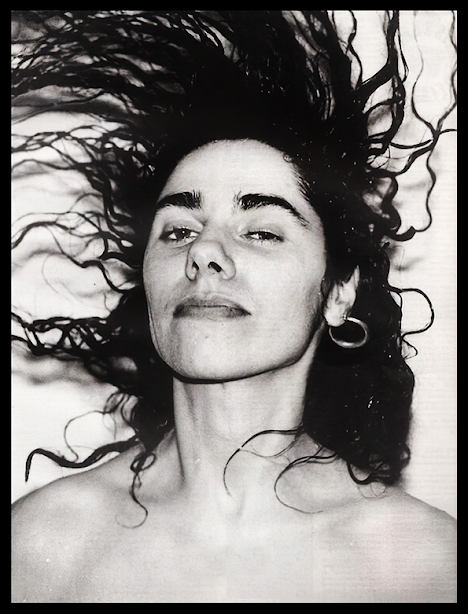#PJ Harvey #Polly Jean Harvey #alternative rock #art rock #indie rock #hard rock #punk blues #folk rock #avant-rock #lo-fi #singer-songwriter #1990s #music video
PJ Harvey, the acclaimed British musician, has built her career on thought-provoking and emotionally charged songs. Released in 1993 as part of her album “Rid of Me,” the track “Man-Size” stands out for its raw intensity and powerful lyrical content. This essay aims to delve into the meaning behind “Man-Size,” deciphering its themes, metaphors, and artistic nuances.
1. Unveiling the Lyrics and Overall Message
“Man-Size” presents itself as an exploration of gender roles and expectations, challenging societal norms and drawing attention to women’s struggles for autonomy and identity. Harvey’s lyrics navigate the complexities of modern femininity and the constant pressure to conform. The song tackles themes such as objectification, power dynamics, and the emotional toll of societal demands.
2. Dissecting the Symbolism
Harvey’s lyrics often carry symbolic elements, adding layers of meaning to her songs. In “Man-Size,” the repeated mention of “man-size” can be seen as a metaphor for both physical and metaphorical strength. It emphasizes the societal expectation for women to fit into a predetermined mold of masculinity and highlights the pressure to conform to masculine traits to gain recognition and respect.
3. Analyzing the Chorus
The chorus of “Man-Size” is particularly gripping, with Harvey passionately proclaiming, “I’m coming up man-size / I’ll rip the whole thing down.” This fiercely defiant statement signifies a resolve to break free from societal constraints and embrace one’s own identity without compromise. It resonates powerfully, echoing the struggles faced by individuals attempting to defy gender norms.
4. The Role of Raw Emotion
PJ Harvey is known for her emotionally charged performances and vulnerability in her music. In “Man-Size,” her raw vocals and intense delivery evoke a sense of urgency, amplifying the song’s themes. By allowing her emotions to shine through, Harvey emotionally connects with her audience, enhancing the impact of her message.
5. Socio-Political Commentary
Throughout her career, PJ Harvey has been highly regarded for incorporating socio-political commentary into her songs. “Man-Size” is no exception, as it addresses the feminist movement and stirs dialogue about the challenges women face in a patriarchal society. The song serves as a rallying cry for women struggling to find their place and assert their independence.
6. The Music’s Impact on the Message
The musical arrangement in “Man-Size” adds depth and intensity to the song’s meaning. The heavy guitar riffs and distorted soundscapes reflect the frustration and anger woven into the lyrics. This sonic backdrop serves as a driving force, mirroring the internal struggles addressed in the song and further amplifying its impact on the listener.
7. Historical Context
Considered within the context of its release, “Man-Size” emerged during the grunge and alternative music era of the early 1990s. It was a time of cultural exploration and challenging norms, making it the perfect stage for PJ Harvey’s provocative and thought-provoking music. The song’s themes resonated strongly with the evolving feminist movement and contributed to ongoing discussions surrounding gender equality.
8. Interpretations and Personal Experiences
As with any piece of art, the interpretation of “Man-Size” may vary from person to person. Listeners often project their personal experiences onto the lyrics, finding solace or inspiration within them. The song’s powerful themes can speak to a wide range of individuals, evoking conversations about gender roles and society’s expectations.
9. Critical Reception and Impact
Upon its release, “Man-Size” received critical acclaim for its boldness and socio-political commentary. Rolling Stone magazine hailed PJ Harvey’s work, stating, “Harvey’s fierce voice is fearlessness itself, her wrenching, instigatory rock & roll scrapes the soul to its core.” The song’s impact extends beyond its initial release, as it remains relevant and resonant, inspiring artists and listeners alike.
10. The Significance in PJ Harvey’s Discography
Within PJ Harvey’s extensive discography, “Man-Size” holds a significant place. It represents her dedication to addressing important societal issues through her music and showcases her growth as an artist. The song’s thematic complexity solidifies Harvey’s reputation as a thoughtful and evocative songwriter, furthering her artistic legacy.
11. Cover Versions and Collaborations
Over the years, “Man-Size” has been covered by various artists, showcasing its enduring relevance and impact within the music industry. The song’s powerful message has inspired collaborations as well, amplifying its reach and demonstrating its ability to transcend time and genre boundaries.
12. Global Impact and Social Awareness
The lasting significance of “Man-Size” lies in its ability to provoke conversations about gender roles and societal expectations on a global scale. Harvey’s fearless approach has contributed to raising social awareness, enabling individuals to critically examine their own perspectives and challenge the prevailing gender narratives.
From: https://oldtimemusic.com/the-meaning-behind-the-song-man-size-by-pj-harvey/






